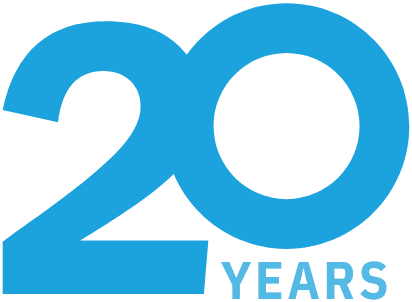It’s no secret that the workplace has evolved – and continues to do so – because of the COVID-19 pandemic and other factors. Traditional working arrangements have been replaced with hybrid and remote models where employees carry out their job functions from new environments, including the home, backyard, coffee shop, and other settings.
Most recently, coworking spaces have grown in popularity. Once favored by freelancers and startups, these shared workplaces have become an extension of the corporate world, allowing businesses and employees an affordable alternative offering greater flexibility and freedom with how and where they work.
For a reasonable rental fee, many coworking spaces offer a shared workspace or private office, wi-fi, printing services, meeting rooms, and other perks. Here, people from all industries can network, increase productivity and inspire creativity away from company headquarters.
However, while these shared office spaces have significant advantages for both employers and employees, they do pose serious security risks to those individuals who manage confidential data.
Common Data Risks in Coworking Spaces
Coworking offices attract all types of people from different walks of life. Unfortunately, all it takes is for one malicious individual to exploit coworking vulnerabilities by stealing personal devices, infiltrating network traffic, or accessing sensitive data in shared folders to initiate a serious security breach.
Wifi sniffing, which is a technique cyber attackers use to examine the data transferred over public networks, also allows hackers to gain access to private browser history, usernames, passwords, and other valuable data. All of this personal information is easier for them to steal when proper network security measures are not in place.
9 Ways To Maintain Data Security in a Coworking Space
With these data risks in mind, there are several important best practices that individuals can follow to improve data security while in coworking spaces:
1. Maintain a Clean Desk
Leaving confidential documents within view of prying eyes makes them more susceptible to theft. All coworking members should clear their shared workspaces at the end of each day and take all documents, files, notes, and removable electronic media with them to keep information out of the wrong hands.
2. Keep Software Up to Date
Maintaining software updates ensures that personally owned and company-issued devices have the newest features and security precautions installed. It is recommended that automatic software updates are activated to ensure the latest operating system and security performance. All company-issued devices should also install up-to-date malware protection and antivirus software when using a public network configuration.
3. Develop Printing and Photocopying Guidelines
Encourage employees to refrain from printing or copying private data on shared equipment in coworking spaces. However, in circumstances where it is unavoidable, outline what needs to be done to keep the physical documents safe and how to properly dispose of them. When making photocopies, workers should ensure they have the original document and copies before leaving the printing area.
4. Implement a Shred-all Policy
Having a shred-all policy for individuals that work in a coworking space can dramatically reduce the risk of a security breach while improving compliance. The policy should mandate the shredding of all forms of confidential data, including paper, hard drives, or other media, and a professional service provider should carry it out.
5. Always Use Virtual Private Networks and Wifi Connections
Using unsecured public networks or guest networks can make it easier for cybercriminals to access business-critical accounts, personal and client data, financial information, and passwords. When working in a shared office space, be sure to disable automatic connections and always make sure coworking network security measures exist. Additionally, use secure wi-fi networks or a virtual private network, and disable folder and file sharing to maintain cyber security when using a public network is unavoidable.
6. Enable Two-Step Authentication and Create Strong Passwords
Multi-factor authentication is a security process that requires more than one method of authentication to verify a user’s identity when logging into online applications, file-sharing sites, web browsers, and more. When paired with strong password protection, two-step authentication provides an effective additional layer of security, making it much harder for cyber attackers to gain access to valuable data on the same network.
7. Use Data Encryption
When sharing highly-sensitive information in a co-working space, it is recommended that data encryption software be used to avoid cyber attacks on wifi networks. This security process translates data into code or ciphertext, which requires a decryption key to interpret the data.
8. Treat Coworking Spaces as an Extension of the Office
When working in coworking spaces, employees should treat their communal workspace as an extension of the office by maintaining company safety and security protocols. This includes best practices like never leaving devices or documents unattended, always using a secure network connection, and properly destroying physical and electronic data. Other protections, such as using headphones during conference calls and installing a screen protector, are also essential.
9. Limit Remote Access
Providing limited remote access to critical data on a need-to-know basis can prevent a serious security breach from occurring while working in coworking offices. Be proactive and keep a record of which employees have remote access to certain information and revoke access upon project completion, job changes, or when the data is no longer required.
Maintain Cyber Security in Any Location With Blue-Pencil
Blue-Pencil’s full suite of information management services are designed to meet a wide range of needs for businesses and employees in all industries and locations. We offer secure shredding, records management and document scanning services that will help your organization take control of your sensitive data, whether your employees are in the workplace, at home, or in a shared coworking environment.
To learn about Blue-Pencil’s information management services, please contact our team to discuss your needs and request a free quote.

